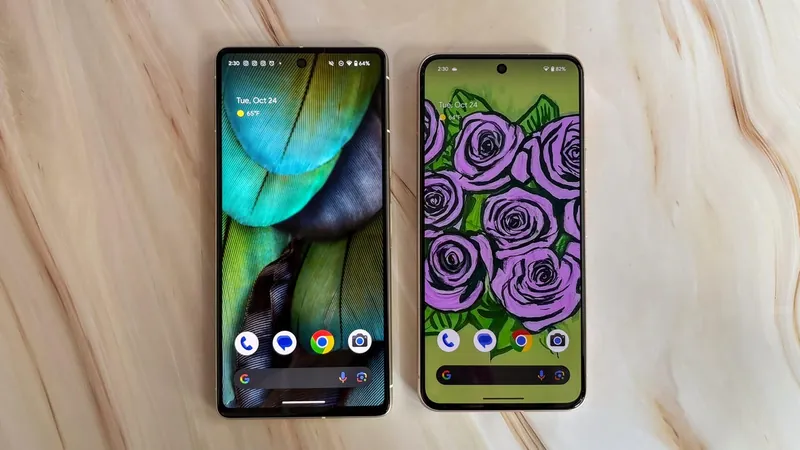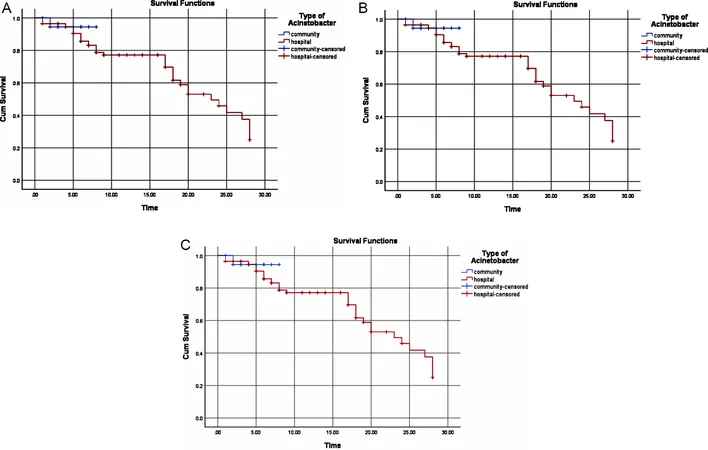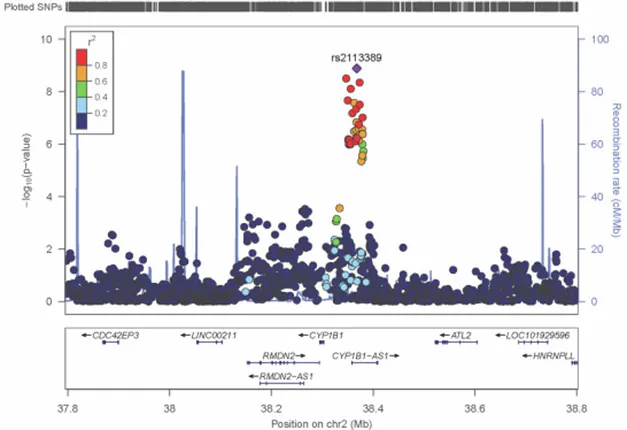
Google Pixel 8 vs. Pixel 7: Is It Time for an Upgrade? Here’s What You Need to Know!
2024-10-06
Are you torn between the Pixel 8 and Pixel 7? While both smartphones boast impressive features, there’s plenty to discuss before making your purchase. Before we break down the key differences, it's worth noting that if you're looking for something cutting-edge, the new Pixel 9 may be the better investment. Priced at $800, $100 more than the Pixel 8, it offers a brighter display, larger battery, and an upgraded processor with more RAM — ensuring longevity and performance.
On the hunt for a more budget-friendly option? The $500 Pixel 8A is an enticing alternative, undercutting the $600 Pixel 7 while providing a more vibrant screen with a higher refresh rate, a newer processing chip, and enhanced camera features, such as "Best Take" and "Audio Magic Eraser." However, do keep in mind you won’t have some exclusive features like reverse wireless charging or an 8x digital zoom.
If you're determined to choose between the Pixel 7 and Pixel 8, let’s examine their standout differences.
Design, Display, and Software: The Battle of the Pixels
At first glance, the Pixel 7 and Pixel 8 appear quite similar with their sleek, glossy backs, matte aluminum frames, and signature camera bar designs. However, the Pixel 8 sports a more compact build with flatter edges, making it more comfortable for one-handed use. Color options vary as well; while the Pixel 7 offers lemongrass, snow, and obsidian, the Pixel 8 showcases hazel, mint, obsidian, and rose.
When it comes to displays, the Pixel 8 features a 6.2-inch screen, slightly smaller than the Pixel 7's 6.3-inch display. But don’t underestimate it; the Pixel 8 can peak at 2,000 nits of brightness compared to the Pixel 7's 1,400 nits and boasts a refresh rate of 120Hz over the Pixel 7’s 90Hz, delivering smoother visuals.
Both phones run on Android 14, but the Pixel 8 is set to receive seven years of software updates, while the Pixel 7 will stop getting major Android upgrades in late 2025, although security updates will continue until 2027. For a phone that remains relevant long-term, the Pixel 8 is the clear winner.
Camera Capabilities: Which Captures Better Shots?
On the surface, both the Pixel 7 and Pixel 8 have a 50-megapixel main camera and a 12-megapixel ultra-wide shooter, but the Pixel 8 introduces a macro photography mode and features an upgraded sensor for enhanced low-light performance. The difference in image brightness and color accuracy is noticeable in real-world scenarios.
For instance, in low-light conditions, the Pixel 8 captures purples and deeper hues more accurately than the Pixel 7. The macro mode allows for vivid close-up details, showcasing an artificial flower distinctly better than the non-macro settings on the Pixel 7.
Innovative editing tools on the Pixel 8 empower users further; features like "Best Take" allow you to rectify group shots by choosing ideal expressions, while "Audio Magic Eraser" significantly diminishes background noise in videos. Though the Pixel 7 also has some editing capabilities, the AI enhancements on the Pixel 8 can really elevate your photography game.
Performance and Battery Life: Staying Powered Up
The Pixel 8 is powered by Google’s latest Tensor G3 chip, enhancing general performance and AI functionalities over the Pixel 7’s Tensor G2. Although both devices perform well during standard usage — from social media scrolling to gaming — the benchmarks reveal that the Pixel 8 holds an edge, especially in graphics performance.
In terms of battery life, both phones are comparable, each lasting about a day on a single charge. Interestingly, the more brilliant display on the Pixel 8 doesn’t seem to hamper its battery efficiency compared to the Pixel 7 during extensive use.
The Final Verdict: Which Pixel Should You Pick?
Ultimately, the Pixel 8 is the smarter investment due to its extended software support and improved features. It offers subtle enhancements in display and camera performance, along with a more refined user experience through AI integration. However, if you're eyeing a budget-friendly option, the Pixel 8A is significantly cheaper than the Pixel 7. And for those looking for premium features, the Pixel 9 is on the horizon, promising even more advanced hardware.
So, is it time to upgrade to the Pixel 8? Considering the future-proof software upgrades and AI innovations, it very well could be!


 Brasil (PT)
Brasil (PT)
 Canada (EN)
Canada (EN)
 Chile (ES)
Chile (ES)
 España (ES)
España (ES)
 France (FR)
France (FR)
 Hong Kong (EN)
Hong Kong (EN)
 Italia (IT)
Italia (IT)
 日本 (JA)
日本 (JA)
 Magyarország (HU)
Magyarország (HU)
 Norge (NO)
Norge (NO)
 Polska (PL)
Polska (PL)
 Schweiz (DE)
Schweiz (DE)
 Singapore (EN)
Singapore (EN)
 Sverige (SV)
Sverige (SV)
 Suomi (FI)
Suomi (FI)
 Türkiye (TR)
Türkiye (TR)